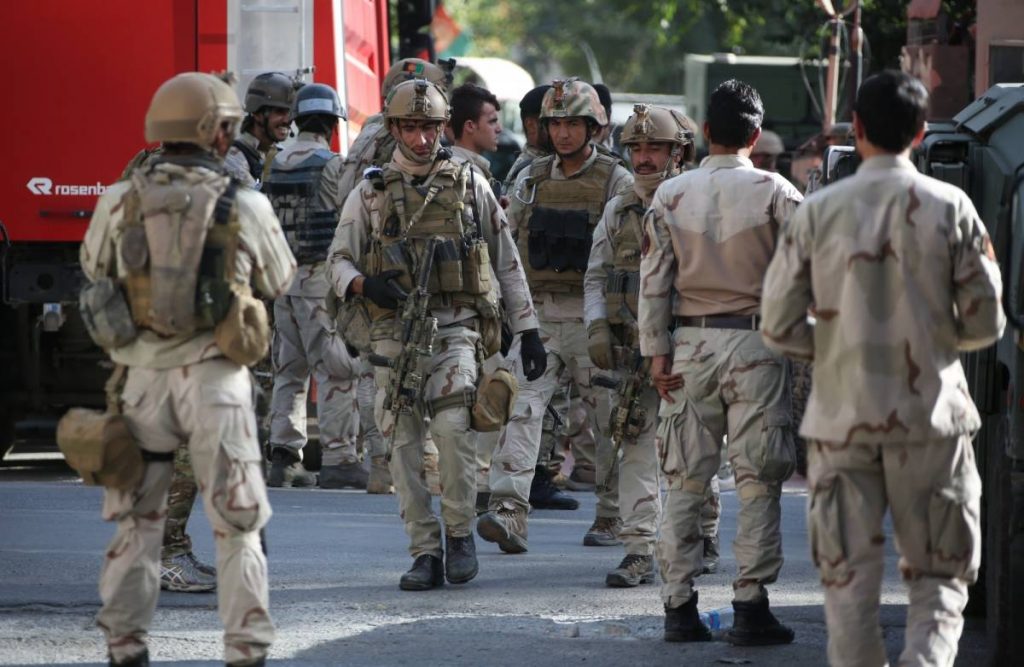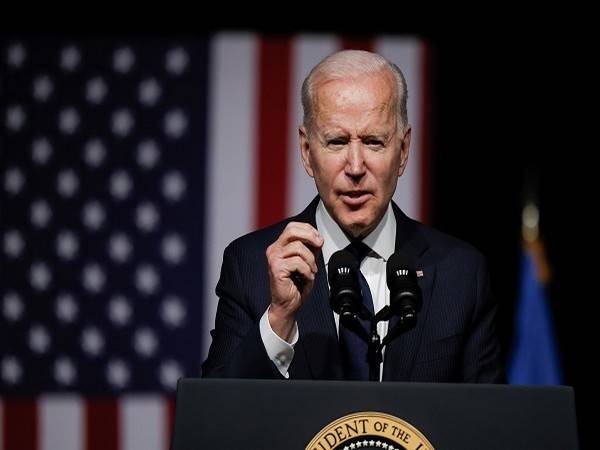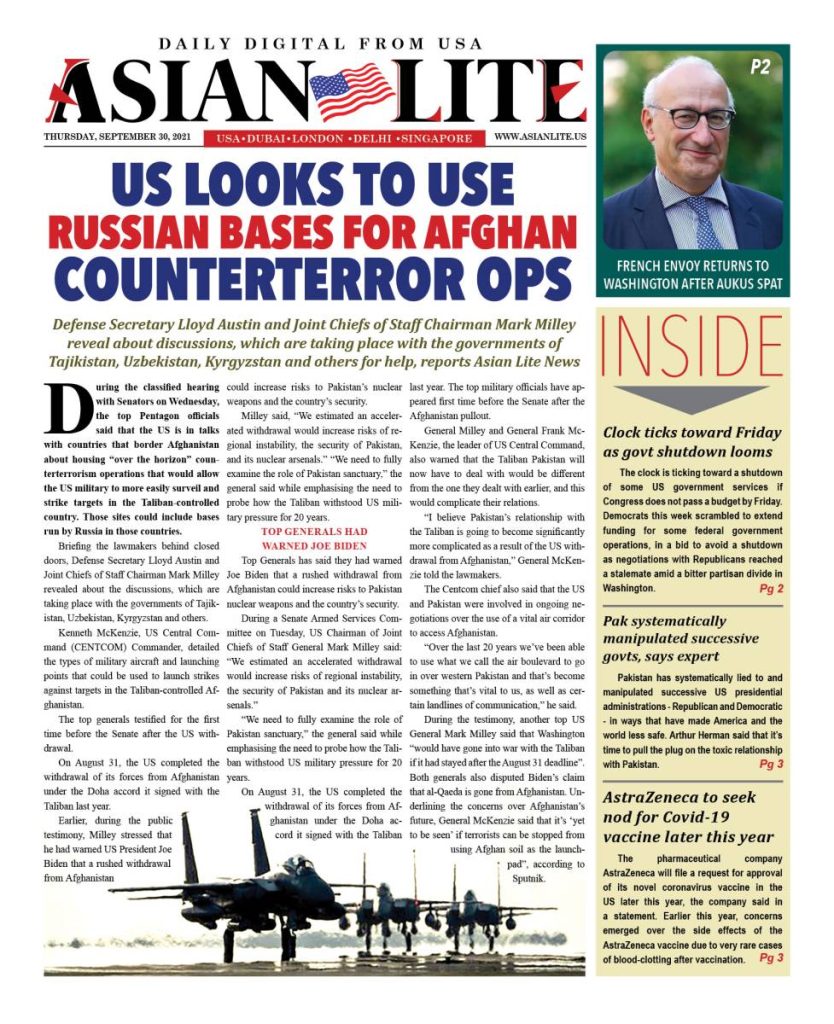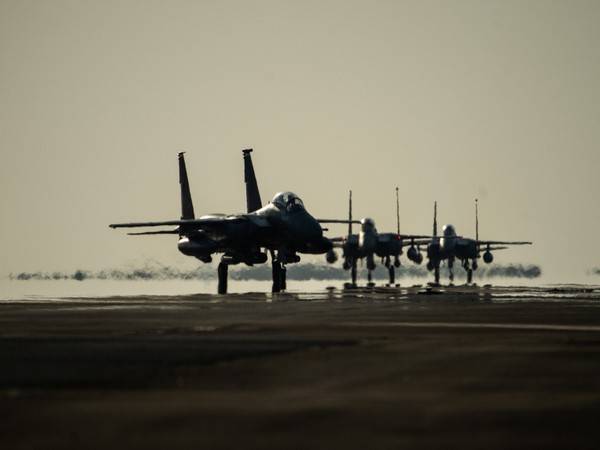Defense Secretary Lloyd Austin and Joint Chiefs of Staff Chairman Mark Milley reveal about discussions, which are taking place with the governments of Tajikistan, Uzbekistan, Kyrgyzstan and others for help, reports Asian Lite News
During the classified hearing with Senators on Wednesday, the top Pentagon officials said that the US is in talks with countries that border Afghanistan about housing “over the horizon” counterterrorism operations that would allow the US military to more easily surveil and strike targets in the Taliban-controlled country. Those sites could include bases run by Russia in those countries.
Briefing the lawmakers behind closed doors, Defense Secretary Lloyd Austin and Joint Chiefs of Staff Chairman Mark Milley revealed about the discussions, which are taking place with the governments of Tajikistan, Uzbekistan, Kyrgyzstan and others.
Kenneth McKenzie, US Central Command (CENTCOM) Commander, detailed the types of military aircraft and launching points that could be used to launch strikes against targets in the Taliban-controlled Afghanistan.

The top generals testified for the first time before the Senate after the US withdrawal.
On August 31, the US completed the withdrawal of its forces from Afghanistan under the Doha accord it signed with the Taliban last year.
Earlier, during the public testimony, Milley stressed that he had warned US President Joe Biden that a rushed withdrawal from Afghanistan could increase risks to Pakistan’s nuclear weapons and the country’s security.
Milley said, “We estimated an accelerated withdrawal would increase risks of regional instability, the security of Pakistan, and its nuclear arsenals.”
“We need to fully examine the role of Pakistan sanctuary,” the general said while emphasising the need to probe how the Taliban withstood US military pressure for 20 years.

Top Generals had warned Joe Biden
Top Generals has said they had warned Joe Biden that a rushed withdrawal from Afghanistan could increase risks to Pakistan nuclear weapons and the country’s security.
During a Senate Armed Services Committee on Tuesday, US Chairman of Joint Chiefs of Staff General Mark Milley said: “We estimated an accelerated withdrawal would increase risks of regional instability, the security of Pakistan and its nuclear arsenals.”
“We need to fully examine the role of Pakistan sanctuary,” the general said while emphasising the need to probe how the Taliban withstood US military pressure for 20 years.
On August 31, the US completed the withdrawal of its forces from Afghanistan under the Doha accord it signed with the Taliban last year.
The top military officials have appeared first time before the Senate after the Afghanistan pullout.

General Milley and General Frank McKenzie, the leader of US Central Command, also warned that the Taliban Pakistan will now have to deal with would be different from the one they dealt with earlier, and this would complicate their relations.
“I believe Pakistan’s relationship with the Taliban is going to become significantly more complicated as a result of the US withdrawal from Afghanistan,” General McKenzie told the lawmakers.
The Centcom chief also said that the US and Pakistan were involved in ongoing negotiations over the use of a vital air corridor to access Afghanistan.
“Over the last 20 years we’ve been able to use what we call the air boulevard to go in over western Pakistan and that’s become something that’s vital to us, as well as certain landlines of communication,” he said.
During the testimony, another top US General Mark Milley said that Washington “would have gone into war with the Taliban if it had stayed after the August 31 deadline”. Both generals also disputed Biden’s claim that al-Qaeda is gone from Afghanistan.
Underlining the concerns over Afghanistan’s future, General McKenzie said that it’s ‘yet to be seen’ if terrorists can be stopped from using Afghan soil as the launchpad”, according to Sputnik.

